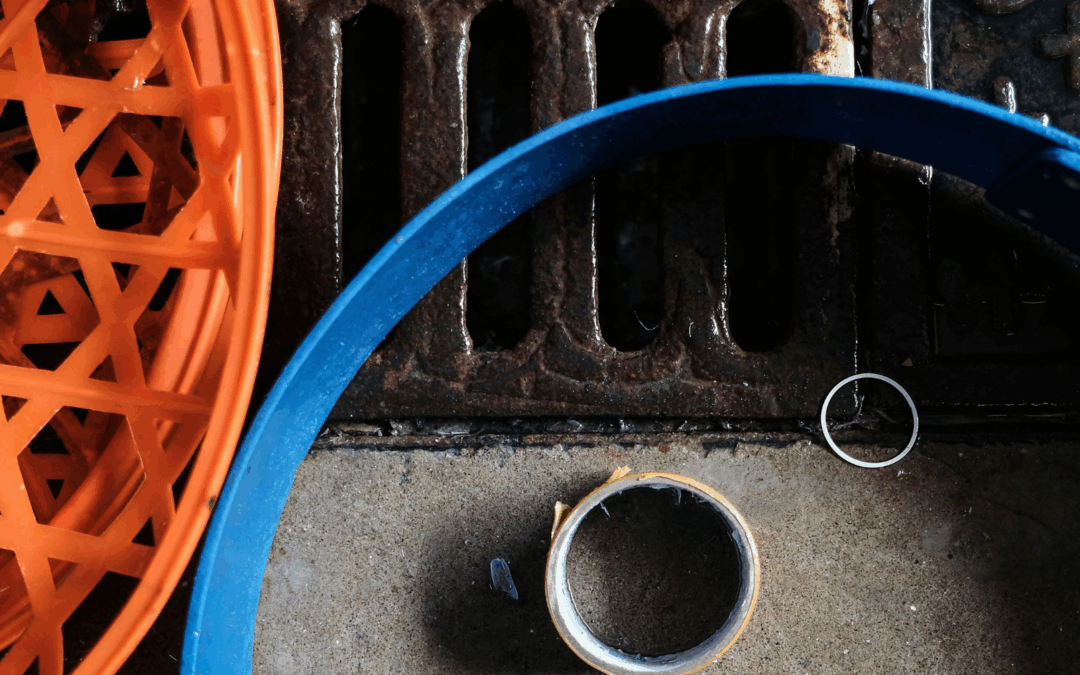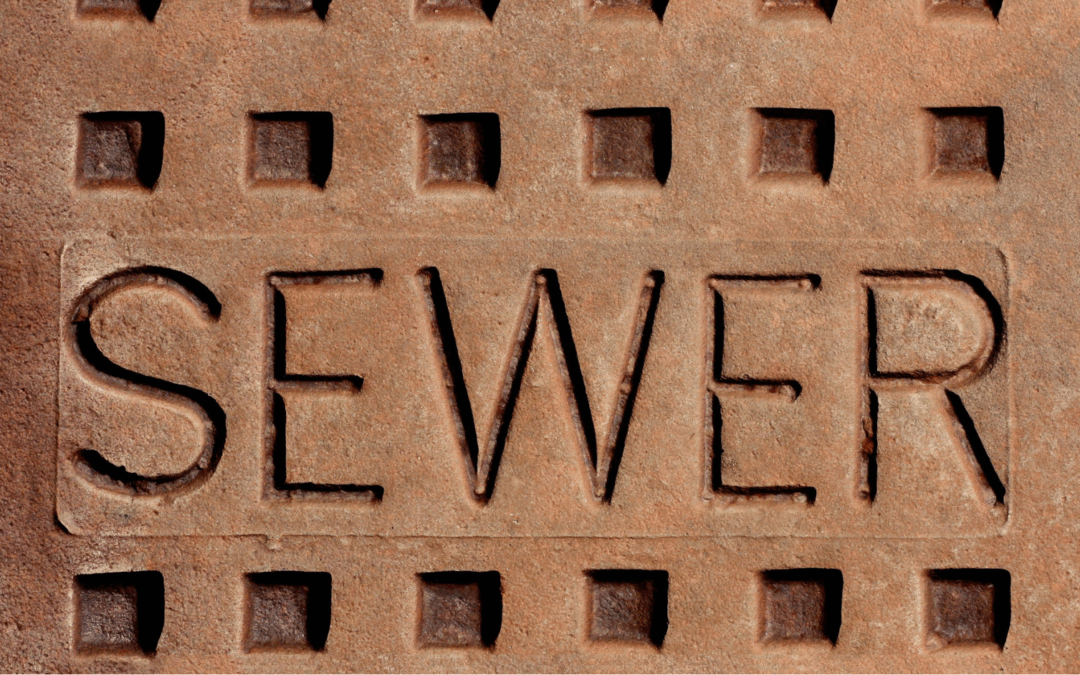If you’re a homeowner in Annapolis, MD, you’ll need to know about septic tank plumbing at some point. A septic tank is an important part of any home’s plumbing system, and it’s crucial to understand how it works and what benefits it can provide.
This blog post will discuss a septic tank, how it works, and why you should consider using one for your home or company. We will also provide information on the best septic pumping service company in Annapolis, MD, so you can get the help you need when maintaining your septic system!
What Is A Septic Tank?

Schedule Service Online
Get a free estimate so you know what you're signing up for
"*" indicates required fields
For Emergency Services Call: 410-255-9300
A septic tank is an underground container used to treat wastewater from your home. It stores wastewater in a large tank and uses bacteria to break down the solid waste, turning it into liquid effluent that can be safely discharged into the environment. This process helps keep your house and its surroundings clean and safe! Septic tank pumping typically involves connecting the tank to your home’s plumbing system and a drain field that helps disperse the effluent.
How Does Septic Tank Plumbing Work?

How does septic tank plumbing work? The process starts with wastewater from your home entering the septic system through an inlet pipe. Once it enters the tank, the solid waste settles to the bottom and is broken down into liquid by bacteria over time. Meanwhile, the liquid effluent rises to the top of the tank and exits through an outlet pipe. This effluent is then sent to a leaching field where it can be safely discharged into the environment. Maintaining your septic system properly is important to ensure that it continues to work properly.
Parts Of A Septic Tank
The main parts of a septic tank are:
1. Baffle: The wastewater is funneled into the tank through an inlet pipe that contains baffles, which serve as a guard against scum buildup and prevent it from flowing back out via the same conduit. In addition to this purpose, these baffles also reduce the speed of water flow, allowing for necessary detention periods where solid particles can settle to their respective depths.
2. Sedimentation Tank: Within the tank, heavier particles settle to the bottom. Through anaerobic reactions, microorganisms break down proteins, carbohydrates, and cellulose into simpler compounds, while nitrogen is converted into ammonia. This process of flocculation liquefies and digests the colloidal matter until completion.
3. Baffle Walls: Septic tanks come equipped with walls that lengthen the detention period for sewage, allowing solids to settle and preventing the floating scum layer from hindering the inlet pipe.
4. Outlet and Outlet Baffle: By passing through a baffle prior to being released through the outlet, effluent is given one final chance to rid itself of scum and other solid particles. This safeguard helps ensure that only treated water reaches its destination.
5. Soak Pit/Drainage Field: After being treated, the final wastewater is released and sent to a soak pit or drainage field through an outlet.
Why Use A Septic Tank?

There are many benefits to using a septic tank for your home’s plumbing system.
Reduces Pollution
A septic tank helps reduce water pollution by keeping wastewater away from natural resources like rivers and streams.
Saves Money
Septic systems can be more cost-effective in the long run since they don’t require municipal utility bills and are less expensive to install than traditional sewer systems.
By using a septic system, homeowners can save on their water bill by not having to pay for public sewage systems.
Reduces Odors
Septic tanks help reduce unpleasant odors in your house by breaking down the solid waste that enters it.
Safe And Reliable
Septic tanks provide a safe and reliable wastewater disposal system that is easy to maintain and can last for many years.
Protects Your Home
Septic tanks help protect your home from groundwater contamination and other water-borne diseases, as the wastewater is treated before it enters your home.
What Happens If You Do Not Use Septic Tanks

Not having a septic tank can have serious consequences for your home and its surroundings.
Groundwater Contamination
Without a septic system, wastewater from your home would be sent directly into natural resources or public sewage systems, polluting the environment.
Disease And Illness
Not having a septic system can lead to contamination of drinking water, leading to possible disease and illness for people who consume it.
Unpleasant Odors
Without a septic tank, your home could have an unpleasant odor from the sewage that is not being treated properly, making it unpleasant to live in and affecting the value of your home.
Damage To Your Home
Not using a septic tank can cause serious damage to your home’s foundation by introducing waterlogged soil into the environment.
Increased Costs
Not using a septic system can lead to higher water bills, as you would have to pay for public sewage systems instead.
Unsanitary Conditions
Without a septic tank, wastewater from your home would be left untreated, leading to unsanitary conditions.
Do’s And Don’ts When Maintaining Your Septic Systems

Do’s
Maintaining your septic system is essential for keeping it in good working order and preventing costly repairs in the future. Here are some tips for maintaining your septic tank pumping system:
Inspect Frequently
It is important to inspect your septic tank regularly for any signs of damage or wear and tear. Schedule an appointment with a professional septic tank plumber to inspect and perform routine maintenance on your system to ensure that it continues to work properly.
Regular Pumping
It is important to pump your septic tank regularly to keep it functioning properly. Most tanks should be pumped every 3-5 years, but this can vary depending on the size of your tank and the amount of wastewater produced.
Use Septic-Safe Products
Only use septic-safe cleaning products in your home, as traditional cleaning products can cause damage to your septic tank. Avoid using harsh chemicals that could harm the bacteria living in your septic tank.
Keep Your Septic Tank Lids Closed And Secured
Make sure that your septic tank lids are always closed and in good condition to prevent any unwanted debris or animals from entering the tank.
Be Mindful Of What You Put Down The Drain
Avoid flushing items such as paper towels and feminine hygiene products, as these can clog up the system or damage the septic tank.
Keep Septic Tank Lids Easily Accessible
Make sure that the septic tank lids are easily accessible in case of an emergency.
Don’ts
Don’t Use Chemical Additives In Your Septic Tank
Septic tank additives are unnecessary, as they can damage the bacteria in your septic tank and lead to more frequent pumping. These can disrupt the balance of bacteria and harm the environment.
Don’t Plant Trees Near The Septic Tank
Planting trees too close to your septic tank can cause roots to grow into the system and block the flow of wastewater.
Don’t Put Hazardous Materials Down The Drain
Avoid putting any hazardous materials, such as paint or gasoline, down the drain, as this can damage your septic tank and put your family at risk.
Don’t Drive Over Your Septic Tank
Driving over a septic system can cause it to crack or break, leading to costly repairs and possible contamination of the environment.
Don’t Try To Repair Your Septic Tank Yourself
Unless you are a professional septic tank plumber, it is best to avoid trying to repair your septic tank, as this can lead to more problems.
Don’t Forget To Pump Your Septic Tank Regularly
Regularly pumping your septic tank is essential to keep it functioning properly. Do this to avoid clogs, backups, and other problems with your septic system.
Hiring A Professional Septic Tank Plumber

When it comes to septic tank pumping in Annapolis, MD, it is important to hire a professional septic tank plumber who has experience with the local pros to help evade any plumbing issues and can ensure that your septic system is functioning properly. Here are some tips for hiring a septic tank plumber:
Check Their Credentials
Make sure the septic tank plumber you are considering is licensed and insured.
Read Reviews
Read customer reviews about what people say about septic services in Annapolis, MD, to get an idea of their experience and reputation.
Ask For References
Ask for references from past clients of the septic tank plumber to get an idea of the quality of their services.
Ask Questions
Make sure to ask any questions you have before hiring a septic tank plumber, such as what type of work they specialize in and whether or not they guarantee their work.
Septic Tank Plumbing In Annapolis, MD

If you’re looking to find septic tank services in Annapolis, MD, then look no further! Maryland Sewer & Plumbing Service provides the best septic tank services in Annapolis, MD. We offer a wide range of septic tank services, including sewer cleaning, septic replacement, installation, repair, and maintenance.
We are licensed and insured, and our experienced plumbers have extensive knowledge of septic tanks and the local area. Plus, we guarantee all of our work and offer competitive prices.
With Maryland Sewer & Plumbing Service, you can rest assured that your septic tank will be in good hands!
So if you’re looking for quality septic tank services in Annapolis, MD, contact Maryland Sewer & Plumbing Service today!
Conclusion
Septic tank plumbing in Annapolis, MD, is an important service that should be handled by a professional septic tank plumber to ensure your system remains functioning properly. Maryland Sewer & Plumbing Service provides the best septic services in Annapolis, MD, and we guarantee all of our work. So if you’re looking for quality septic services, contact us today!




